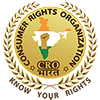The main function of consumer court is to provide some extra privilege to the consumers and to maintain fair practice by the seller or the service provider towards the consumer. Submitting complaint is very simple and consumer has no need to hire any lawyer. Approaching a consumer court is very simple and extremely cheap as you can represent yourself without having to hire a lawyer and not required to pay any court fee but just a nominal fee.
Objectives of Central Council:
The objectives of the Central Council are to promote and protect the rights of the consumers such as:-
- The right to be protected against the marketing of goods and services which are hazardous to life and property.
- The right to be informed about the quality, quantity, potency, purity, standard and price of goods or services, as the case may be so as to protect the consumer against unfair trade practices.
- The right to be assured, wherever possible, access to a variety of goods and services at competitive prices.
- The right to be heard and to be assured that consumer’s interests will receive due consideration at appropriate forums.
- The right to seek redressal against unfair trade practices or restrictive trade practices or unscrupulous exploitation of con¬sumers; and
- – the right to consumer education.
Objectives of State Council:
The objects of every State Council shall be to promote and protect within the State the rights of the consumers laid down in clauses (a) to (f) in central council objectives.




